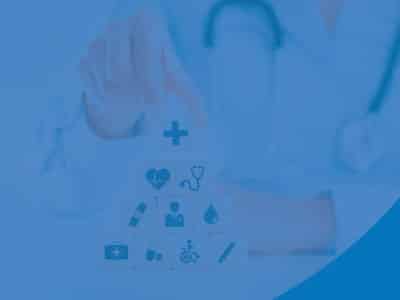Dual diagnosis in Thornton, CO is a growing problem, at least partly due to hardships and uncertainty connected to the novel coronavirus pandemic. It’s really two co-occurring problems: substance use disorders and simultaneous mental health disorders.
A dual diagnosis program in Thornton, CO can diagnose and treat such co-occurring disorders in Thornton, CO.
What is dual diagnosis in Thornton, CO?
Mental health disorders are when individuals’ thoughts, emotions, and behaviors interfere with their ability to function, professionally and personally, or even take care of themselves.
Substance use disorders are also mental health disorders, with similar effects, but are distinguished by the inability to control the use of substances (including alcohol, prescription medications, and illegal drugs) despite their harmful physical, mental, and social effects.
So, what is dual diagnosis in Thornton, CO? Also known as comorbidities or co-occurring disorders, a dual diagnosis program is when someone has both a substance use disorder (SUD) and another mental health disorder at the same time.
Both have genetic, environmental, and experiential causes. Both can cause physical changes in the brain. Both require dual diagnosis rehab in Thornton, CO.

Dual diagnosis treatment in Thornton, CO
One reason why dual diagnosis cases aren’t often treated together is because of how healthcare staff is trained.
Although mental health and substance use disorder treatment centers in Thornton, CO now often think of the two disorders as connected, in the past they were considered separate. Few physicians or counselors were rarely taught to treat both disorders, let alone at the same time.
While the general public might look down on both the mentally ill and the substance-abusing, among mental health practitioners there was a stigma for addicts. Substance use disorder specialists likewise might hold a similar stigma for the mentally ill.
Substance use disorder professionals would refuse to treat people with current mental illnesses. Mental illness professionals would require that clients get sober elsewhere before treatment could begin.
That’s if they even diagnosed the other disorder. Because the symptoms are similar, one might be overlooked or mistaken for the other. The staff at a dual diagnosis treatment facility in Thornton, CO is trained to look for both.
Some counselors and physicians may still believe that only one disorder—whichever came first or whichever is most severe—needs to be treated. Once that’s under control, the other disorder can be treated if it still needs to.
The best mental health and addiction treatment centers in Thornton, CO no longer think such a sequential approach is effective. Even if that one condition improves, the other may get worse.
The current consensus is that both disorders need to be treated at the same time, either by separate therapeutic teams or, preferably, one integrated team trained in the treatment of both disorders.
Types of dual diagnosis treatment in Thornton, CO
These are some of the treatments used in dual diagnosis treatment centers in Thornton, CO:
- Behavioral therapies: Variations on classic psychotherapy or talk therapy aimed at understanding and changing behavior. Some types of behavioral therapy seem to work better with certain substances, including:
- Cognitive-behavioral therapy (CBT): Replacing negative thinking with positive, through limited interaction with a therapist; for alcohol, marijuana, cocaine, and methamphetamine.
- Dialectical behavior therapy: A variation of CBT for dual diagnosis cases involving borderline personality disorder (BPD)
- Contingency management/Community Reinforcement Approach Plus Vouchers: The use of token incentives to maintain sobriety to treat SUDs involving alcohol, stimulants, opioids, and marijuana.
- Motivational Enhancement Therapy: For alcohol and marijuana.
- 12-Step Facilitation: Aggressive encouragement of membership and participation in a 12-step group for treatment of alcohol, stimulants, and opioids.
- Matrix Model: A combination of the above treatments, originally for abuse of stimulants.
- Assertive Community Treatment: Originally a treatment for mental illness, now extended to dual diagnosis treatment.
- Cognitive-behavioral therapy (CBT): Replacing negative thinking with positive, through limited interaction with a therapist; for alcohol, marijuana, cocaine, and methamphetamine.
- Medication-assisted treatment: Opioid replacement drugs (buprenorphine, Suboxone, methadone), alcohol blockers (naltrexone, acamprosate, ), antidepressants, and antipsychotics.
- Holistic treatments: Also known as complementary and alternative medicine (CAM), these are meditative, nutritional, and physical practices for pain suppression and treatment of mental health disorders such as stress, anxiety, and trauma.
A dual diagnosis treatment center in Thornton, CO might offer intensive outpatient (IOP) treatment in the form of a day hospital. Residential dual diagnosis treatment centers in Thornton, CO offer around-the-clock inpatient care.
Based on one 1996 survey, an inpatient dual diagnosis treatment center in Thornton, CO, or elsewhere is more than twice as likely to be more effective than an outpatient (35% vs. 14%), but 50% of the studies found no significant difference.
What causes dual diagnosis?
Mental illness and drug abuse in Thornton, CO co-occur for three main reasons:
- People with mental illness may abuse substances in an effort, conscious or unconscious, to self-medicate for their symptoms. Mental illness can also intensify the effects of substance use, making addiction more likely.
- Some substance use may cause, trigger, or exacerbate some mental illnesses.
- Substance use disorders and mental illnesses have common risk factors, including genetics, environment, and trauma.
What mental illnesses co-occur with addictions?
Substance use disorders occur more frequently with certain mental health problems, including:
- Depression.
- Anxiety disorders. Particularly generalized anxiety disorder (GAD) and post-traumatic stress disorder (PTSD)
- Bipolar disorder
- Personality disorders, including antisocial and borderline personality disorders.
- Psychotic disorders, such as schizophrenia
- Attention-deficit hyperactivity disorder (ADHD)
More than one in four adults living with serious mental health problems also has a substance use problem.
Based on data from the National Survey on Drug Use and Health, 2008 to 2014, it’s estimated that every year:
- 3.3% or 7.7 million US adults have both a SUD and a mental illness
- 37.9% of the 20.3 million people with a SUD also have a mental illness
- 18.2% of the 42.1 million people with a mental illness also have a SUD
(That’s per year. Over a lifetime, more than 50% of the US population will be diagnosed with a mental health disorder and 10% will be diagnosed with a drug use disorder, and 6.7% with an alcohol use disorder.)
More recent figures found 17 million US adults had co-occurring disorders in 2020 alone.
The more serious the mental illness, the more likely there will be co-occurring substance use disorder. Among those seeking treatment for misuse of prescription painkillers, 43% have a co-occurring mental health disorder. Among adolescents, more than 60% of those seeking SUD treatment have a dual diagnosis.
Need for Dual Diagnosis Treatment in Thornton, CO
The 2021 Colorado Health Access Survey found that mental health has deteriorated in the state due to the novel coronavirus COVID-19. Substance use disorder and overdose deaths have also risen.
The percentage of Coloradans reporting eight days or more of poor mental health in 2020, already at a record high in 2019, increased to:
- 23.7% among those ages 5 and older
- More than 33% among those ages 16 and older
- More than 50% among young adults
At the same time, vital statistics gathered by the Colorado Department of Public Health and Environment found that drug overdose deaths—especially fentanyl overdose deaths—also increased from 2019 to 2020.
Colorado’s drug overdose death rate per 100,000 for 2020 was:
- 24.8 for all drugs, up 38% from 2019’s 18.0 (and double the 2005 rate of 12.4).
- 9.3 for fentanyl, a 250% increase over 2019’s 3.6.
- 15.2 for heart attacks
In 2020, there were 1,477 recorded drug overdose deaths in Colorado, of which:
- 956 (almost 65%) involved opioids.
- 798 (54%) involved prescription drugs (up from 439)
- 540 (36.5%) involved fentanyl (up from 222)
- 525 (35.5%) involved methamphetamine (up from 349).
- 220 (almost 15%) involved heroin (up from 211)
- 219 (almost 15%) involved cocaine (up from 135)
No 2020 statistics were available for alcohol, but from 2018 to 2019, pre-pandemic, there was a 13% increase in alcohol-related deaths in Colorado.
A comparison of May 2019 alcohol sales over May 2020, as measured by alcohol excise taxes collected, showed an almost 50% (49.7%) increase.
Although there’s a need for dual diagnosis treatment in Thornton, CO, and elsewhere in the state and nation, few seek it.
More than half (52.5%) of people who need both mental health and addiction treatment in Thornton, CO do not get treatment for either disorder. Their top reasons were:
- 52.2% said they could not afford treatment.
- 23.8% didn’t know where to get treatment
- 23.0% thought they could get well without treatment
There does not seem to be one best, most effective, evidence-based treatment for dual diagnosis treatment programs in Thornton, CO. Often treatment for substance use disorders requires more than one treatment type. This is even more true for dual diagnosis since two disorders must be treated.
Logically, some form of integrated dual disorder treatment (IDDT), combining different approaches, would work better, but the evidence to date doesn’t necessarily back that up. There don’t seem to be many studies, however.
Sources
Medical disclaimer:
Sunshine Behavioral Health strives to help people who are facing substance abuse, addiction, mental health disorders, or a combination of these conditions. It does this by providing compassionate care and evidence-based content that addresses health, treatment, and recovery.
Licensed medical professionals review material we publish on our site. The material is not a substitute for qualified medical diagnoses, treatment, or advice. It should not be used to replace the suggestions of your personal physician or other health care professionals.








